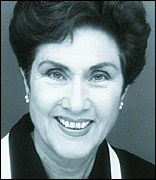

![]()
Gathering Places


![]()
Gathering Places
Behind the visibility generated in the strike by the faculty of the University of Hawaii last month has developed a textbook example of the dangers of secrecy in a state-supported institution. Secret dangers
plague UHSecrecy in government agencies works to the advantage of privileged, powerful insiders -- and becomes a key means for them to maintain their positions. Conversely, secrecy works against the most disadvantaged, least powerful elements of the community.
These twin dangers began at UH on March 12, when the Board of Regents (BOR) announced the appointment of Evan Dobelle to become UH president as of July 1. The board also announced Dobelle's salary at $442,000 a year -- or 264 percent more than that of outgoing President Kenneth Mortimer.
The BOR acted behind closed doors in deciding this expenditure of funds, thus preventing the public from knowing the reasons for its decision and the source of the funds or bothering to let citizens voice their views.
Setting the salary for the UH president was not an agenda item for the BOR's meeting that would have alerted citizens to express their views, according to my review of the agendas of the BOR and its committees for the past six months. This locking-out-the-public approach was contrary to the letter and spirit of Hawaii's law requiring open meetings for state and city agencies -- with certain exceptions. Deciding the UH president's salary was not an exception.
The Legislature in 1975 passed the open-meetings law -- called the Sunshine Law -- to permit scrutiny of government agencies, thus enhancing their accountability, and to inform the public. In theory, this sunshine in government acts as a disinfectant to lessen maladministration, favoritism and illegal or unethical activities.
The second danger developed on March 16, when the BOR met to approve an increase in tuition. The BOR had listed the tuition hike on the agenda for its meeting at Windward Community College. But it denied community college students, who were affected most severely by the increases, the opportunity to testify. Again the BOR seemingly violated the Sunshine Law, which says that oral testimony must be accepted from the public in such a meeting of a public agency.
The BOR's secrecy and silencing of students have troubling implications. They come just four months after more autonomy was granted to UH by voters who approved in November an amendment to Hawaii's Constitution. Yet if the BOR interprets autonomy as license to continue to shut out the public, UH will become a gated preserve for the privileged that prevents scrutiny by and accountability to Hawaii's taxpayers.
Moreover, President Dobelle does not begin to build credibility for his announced plans to bring transparency to the UH budget when his own salary was decided in such secrecy.
Even worse, the BOR's locking-out-students policy telegraphs a disturbing lesson. It tells students, to whom politics hardly matter at all, that they hardly matter in UH politics.
Beverly Ann Deepe Keever is a professor
of journalism at the University of Hawaii-Manoa.